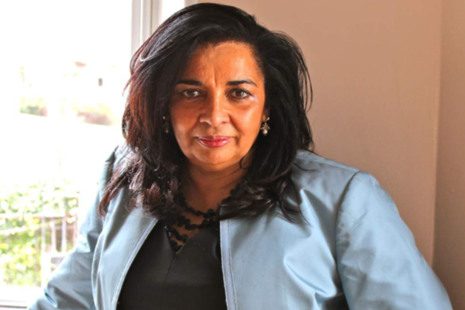Claire Dove CBE

Biography
As VCSE Representative, Claire acts as an intermediary between the Government and the voluntary and social enterprise sectors to champion the Social Value Act and an improvement in commissioning practices. Claire was appointed as VCSE Crown Representative in February 2018. As a key player in the social enterprise movement for over 40 years she brings a wealth of experience to the role.
Claire nationally and internationally is known for her work in the sector and for ten years chaired Social Enterprise UK. She worked with government and leaders from the sector to create the first strategy for the Social Enterprise movement. She ensured that Social Enterprises had a voice within Westminster and Whitehall, this included working with the teams to introduce the Social Value Act which is now embedded into many local government frameworks and worked with Cabinet Office and the Department for Digital, Culture, Media and Sport to develop the Social Value Model. After stepping down as chair of Social Enterprise UK Claire became a patron to the organisation.
Claire led the highly successful Blackburne House Group, until she retired in July 2020. Blackburne House offers an outstanding educational offer to women alongside running its award-winning School for Social Entrepreneurship and highly successful social enterprises.
Claire has received many awards for her role within the sector, which includes an MBE, OBE and also the Queens Lifetime achievement award for Enterprise promotion. Claire was once again honoured in the 2020 New Year’s honours list with a CBE.
On her appointment Claire said:
“It’s an honour to take on this role. Millions of people benefit from the work that charities and social enterprises do and I cannot wait to get started to ensure this sector continues to go from strength to strength.”
Claire’s work in her role as VCSE Crown Representative includes:
-
Enabling the VCSE sector to deliver public services and increase the diversity of public service suppliers
-
Working with industry and sector experts to identify and reduce barriers to VCSE participation in public service markets - including those small and medium sized
-
Raising awareness of and strengthening and improving the use of the Social Value Act in central government and the wider public sector
-
Chairing regular meetings with the VCSE sector, including the VCSE Crown Representative Advisory Panel, which brings together key stakeholders from the VCSE sector to facilitate discussions regarding the general state of the sector, and what government is working on in regards to procurement, funding, and spending. The panel members are as follows:
- Alastair Wilson - CEO, School of Social Entrepreneurs
- Anne Fox - CEO, Clinks
- Tony Armstrong - Chief Executive, Locality
- Julian Blake - Partner, Stone King LLP
- Kamran Mallick - CEO, Disability Rights UK
- Kunle Olulode MBE - Director, Voice4Change England
- Muna Yassin MBE - Managing Director, Rooted Finance
- Peter Holbrook CBE - CEO, Social Enterprise UK
- Sarah Crawley Beaumont OBE - Former CEO, Initiative for Social Entrepreneurs
- Sarah Vibert - Chief Executive, The National Council for Voluntary Organisations
- Steve Wyler - Independent Social Change Consultant and Writer
- Veronica Daly - Chief Procurement Officer, King’s College London
- Vivienne Hayes MBE - Chief Executive, Women’s Resource Centre (WRC)
-
Chairing the Joint Diversity Taskforce (formerly the BAME, Women’s and Disability Taskforces), which meets with the VCSE Crown Representative to focus on improving the commissioning of VCSE’s led by and supporting women, people of ethnic minorities and disabled people. Kunle Olulode MBE (Director, Voice4Change England), Vivienne Hayes MBE (CEO, Women’s Resource Centre), and Kamran Mallick (CEO, Disability Rights UK) co-chair the Joint Diversity Taskforce
Claire wants to work collaboratively with VCSEs and wider civil society to draw on their knowledge and expertise. To make the most of these opportunities make sure you follow Claire on Twitter for updates @VCSECrownRep or visit the Voluntary, Community, and Social Enterprise business hub for a guide on how the government is supporting VCSE organisations, including links to guidance and tools.
Voluntary, Community and Social Enterprise (VCSE) Representative
The VCSE Representative acts as an intermediary between government and the voluntary sector to champion the Social Value Act and an improvement in commissioning practices.